7 Data-Driven Facts That Prove You Suck At Blogging

The data is in. The numbers have been crunched, and it doesn’t make pretty reading. Many of us still struggle in understanding exactly what makes a successful blog.
But fear not – we’ve delved deep into the depths of analytics and dug out the key traps that we’re often guilty of falling into. So take a seat, and have a look at the data that shows what makes a blog suck.
- You don’t focus on the length of your content
Size matters in the Blogosphere – and Google agrees. In research conducted around articles containing between 51 and 9,999 words, it has been found that the average length of a front-page article on a typical Google search is around 1,890 words. There’s also a correlation showing that shorter a piece is, the further from the first few pages of the search engine it gets.
This flys in the face of a quality-over-quantity approach, but why? It could be part of Google’s algorithm, or due to longer posts traditionally attracting more social shares. Furthermore, it could be down to bulkier posts having a higher chance of generating topical content, where better fitting keywords add to the article’s favourability in search performance.
This data certainly bodes well for the more verbose blogger and could shed some light on why a more succinct, punchier article may struggle to gain a similar level of exposure.
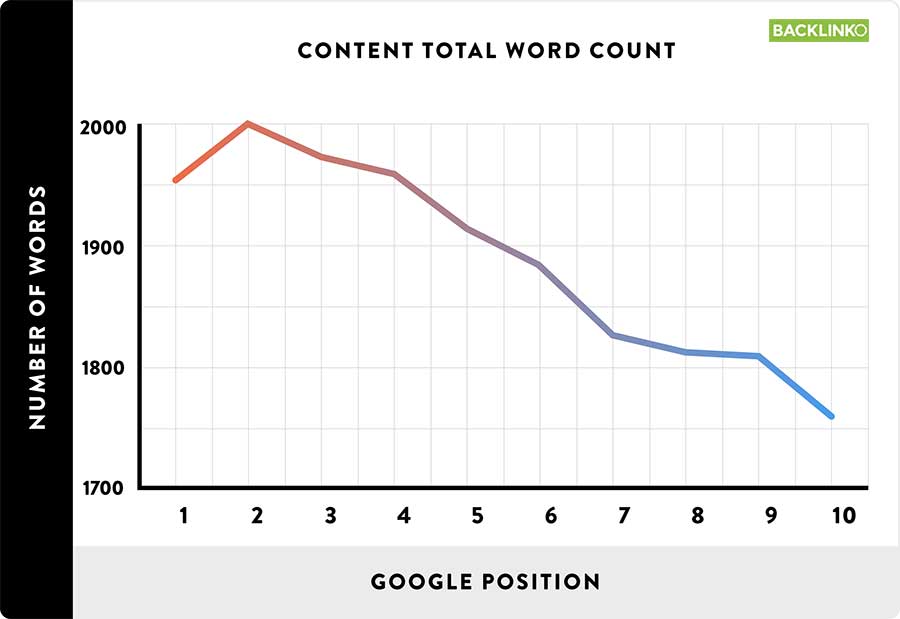
- You don’t focus on links
It’s been long-known that backlinks (or inbound links) play a pivotal role in driving traffic to your site, but data shows that having backlinks from a range of different websites, as opposed to many backlinks stemming from a single site, is key.
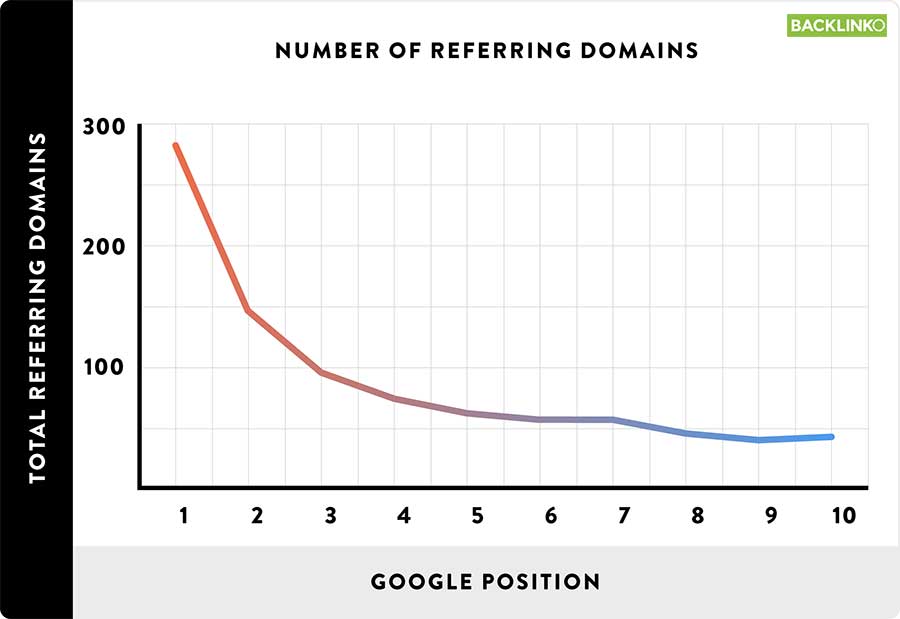
The above image tells us, in no uncertain terms, that the first pages of Google search results typically features websites boasting between 200-300 separate domains linking them.
It’s blindingly clear here that diversity is imperative. So be ready to spread the word on your blog, consider conducting an email outreach or do some quality guest blogging and aim for as many unique backlinks as you can for the very best results.
- List of 300+ Websites/Blogs That Accept Guest Posts & Contributions.
- List of 1500+ Quality Blogs That Accept Guest Posts.
- Your traffic sucks
Without website traffic, you’re essentially preaching to an empty room. Now, we’ve already focused on the importance of the size of your content as well as the value of effective backlinks. Here we can see traffic averages for blogs of varying production rates and sizes:
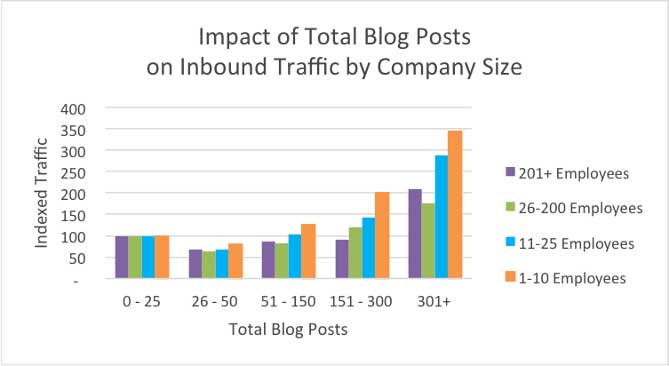
The data clearly shows that more established blogs gather consistently larger audiences, and also provides us with a handy visual guide on managing our traffic expectations. For example, if you’re a smaller, but established blog with over 100 posts finding yourself making no headway in the Blogosphere, you may need to reassess your approach – because data suggest that blogs of similar stature can expect around a 50% increase in traffic at this stage in their lifespan.
Reassess your target audience and check the quality of your backlinks to give you the best chance of achieving the traffic your site deserves. Sometimes all it takes is a little self-promotion to roll in the numbers – so don’t be afraid to show off your expertise via guest blogging on likeminded blogs elsewhere.
- You don’t publish frequently
It pays to be busy. Audiences enjoy a regular stream of content, and the difference between producing fresh content weekly and bi-weekly is impressive – amounting to 1/3rd better traffic for the slightly busier blogs.
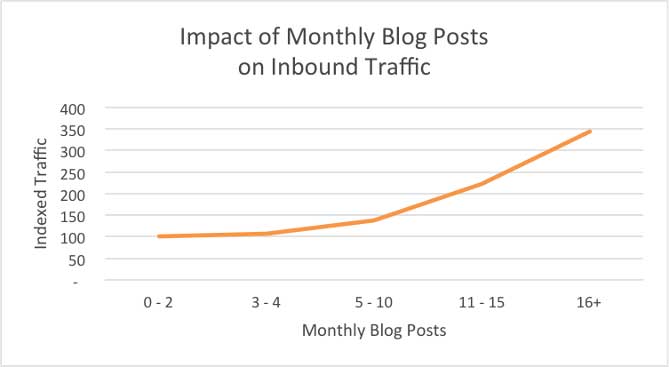
The data goes on to tell us that sites posting up to four articles per week can expect 3.5 times more traffic than more infrequent bloggers.
Be sure to keep caring for your blog and providing fresh content – it’s evident that readers are less likely to come back to a slower production line of articles.
- Your site has poor performance
People are impatient. If they have to wait a second too long for their content to load, then they’ll give up and move on. You don’t want hours of toil and research to be undermined by an underperforming web page.
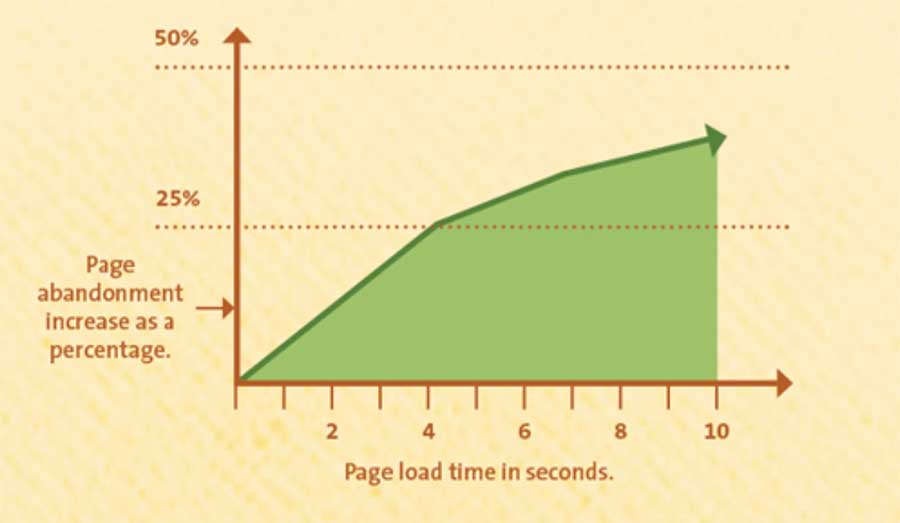
The data from KissMetrics tells us that it takes just four seconds of unresponsive behaviour from a host site for 25% of readers to abandon their attempts to view a page. This figure increases to 40% around the 10-second mark. You can’t afford to lose nearly half of a would-be audience due to shoddy loading times.
Make sure you don’t cut corners in finding a domain for your website. Also, be sure to not cram digital content into your blog in a way that could compromise its performance. Videos and Gifs can be engaging, and advertising can be lucrative – but make sure your page is as accessible as possible – commuters on the train to work don’t always get enough signal to load fancy content.
- Your email open rate sucks
Marketing your product is tedious business, and yet again we have data to show us how to maximise our outreach potential.
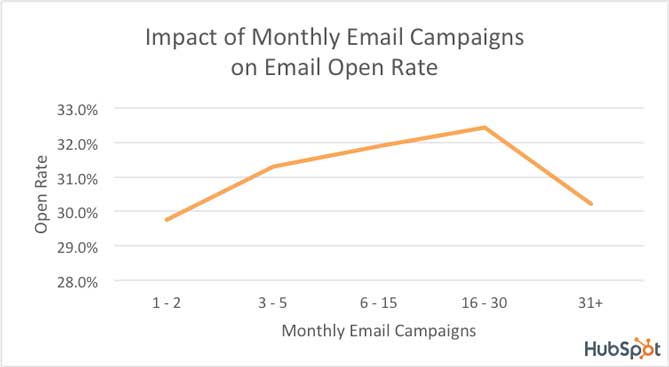
While the average open rates of email campaigns between the occasional emailer and the more prolific, just a marginal increase in your success rate of having your emails read can make all the difference.
The data tells us that for the highest chance of a recipient opening your messages, it pays to contact your target market regularly, with 16-30 emails per month bringing the best returns on your efforts at around 32.5% of correspondence being opened. This percentile dwindles when the rate of emails exceeds an average of one-per-day, presumably owing to the increased chance of being perceived as more of a nuisance marketing campaign.
Likewise, the evidence shows that sending fewer emails per month is less successful too, with monthly and bi-monthly campaigns generally failing to hit a 30% open rate.
Plugs pay dividends. Keep in touch with your target market, but avoid spamming them with multiple daily emails – the data indicates that you put your audience off.
- Your social traffic sucks
Search Engine Optimisation isn’t the be-all-and-end-all of online exposure. In fact, data claims that social media is a more potent driving force in bringing traffic to your site.
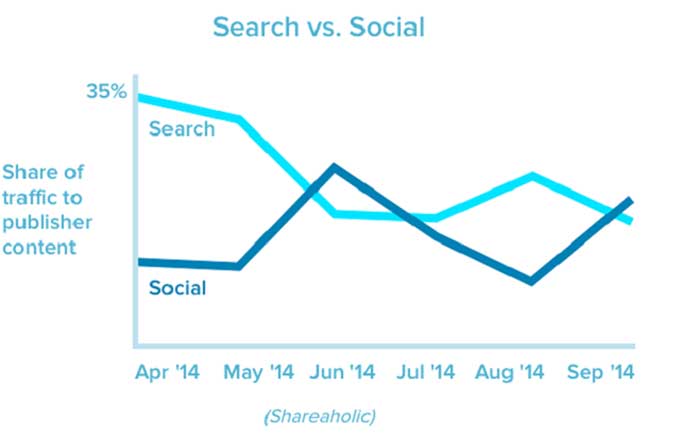
Moving into 2015, social marketing company, Shareaholic, announced that social media had become the primary referrer of traffic online, charting at a sizeable 31% of all referrals. This represented a mammoth increase from 22% on the previous year.
To break this information down, we can see that Facebook was responsible for a quarter of all social media traffic – underlining the site’s prowess in bringing large-scale audiences to the Blogosphere. Pinterest also charts well, but all channels remain dwarfed by the power of Mark Zuckerberg’s formidable platform.
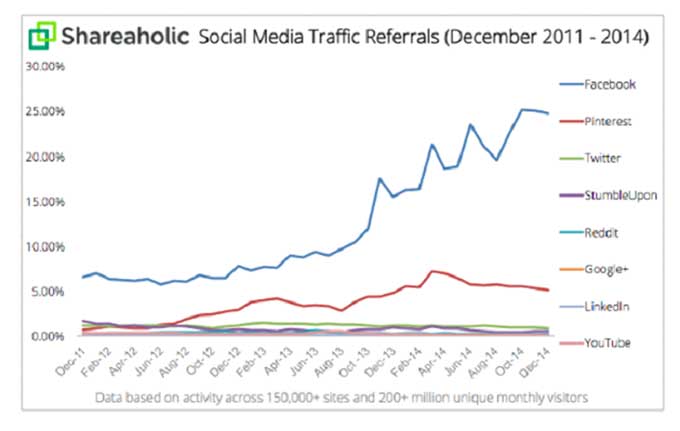
Make sure you tap into the power of social media referring – especially utilising the share button on Facebook. Data tells us that the social giant is responsible for around 8% of all traffic referrals online today. So don’t pass up the opportunity to maximise your potential audience – you don’t have to suck at blogging!
Bring the best of the CEOWORLD magazine's global journalism to audiences in the United States and around the world. - Add CEOWORLD magazine to your Google News feed.
Follow CEOWORLD magazine headlines on: Google News, LinkedIn, Twitter, and Facebook.
Copyright 2025 The CEOWORLD magazine. All rights reserved. This material (and any extract from it) must not be copied, redistributed or placed on any website, without CEOWORLD magazine' prior written consent. For media queries, please contact: info@ceoworld.biz








